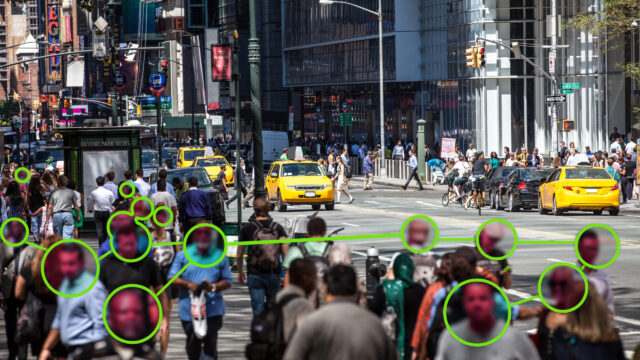The US began collecting biometrics data from Iraqis in 2004 as part of its efforts to screen individuals entering the country. The US has continued to collect and retain this data even after the withdrawal of troops from Iraq in 2011. The US government has justified this practice by citing the need to protect US citizens and interests from terrorist threats.
Critics have raised concerns about the privacy and civil liberties implications of the US government collecting and storing biometric data on millions of Iraqis. There is also concern that this data could be used to target and track Iraqis who have been critical of the US government. The US government has not provided a clear explanation of how it plans to use this data or how long it plans to retain it. This has led to calls for more transparency and accountability from the US government on this issue.
The US Has Collected Biometrics Data From Over 4.5 Million Iraqis
It’s been over 15 years since the United States invaded Iraq, and while the country has long since withdrawn its troops, it still retains the biometrics of millions of Iraqis.
The US began collecting biometrics data – fingerprints, iris scans, and facial photographs – from Iraqis in 2004, as part of its efforts to screen for insurgents and terrorists. But even after the last US troops left Iraq in 2011, the US continued to collect and store this data. In 2016, it was revealed that the US had collected biometrics data from over 45 million Iraqis – nearly the entire population of the country. This raises a number of questions: why does the US still retain this data, and what are they doing with it?
There are a few possible explanations. Firstly, it’s possible that the US is using this data to screen Iraqis who are applying for visas to enter the United States. Secondly, the US may be sharing this data with other countries – particularly those in the Middle East – as part of counterterrorism efforts. Finally, it’s also possible that the US is simply holding onto this data in case it’s needed in the future.
Whatever the reason, it’s clear that the US has a vast database of Iraqis’ biometric data – and it’s not clear what they’re doing with it.
The US Has Retained The Biometrics Data Of Iraqis Even After They Have Left Iraq
The US has retained the biometrics data of Iraqis even after they have left Iraq. This has caused concern among privacy advocates and human rights groups. The US began collecting biometrics data from Iraqis in 2004, as part of its security screening process for visa applicants. The data includes fingerprints and iris scans. The US has continued to collect this data even after Iraqis have left Iraq. The US has justified this practice by saying that it needs to screen Iraqis for possible terrorist links. However, privacy advocates and human rights groups have criticized the US for retaining the biometrics data of Iraqis after they have left Iraq.
They argue that this practice violates the privacy of Iraqis and could be used to target them for harassment or other human rights abuses. The US should stop collecting and retaining the biometrics data of Iraqis after they have left Iraq. This practice violates the privacy of Iraqis and could be used to target them for harassment or other human rights abuses.
The US Claims That It Retains The Biometrics Data Of Iraqis For Security Reasons
It’s been over a decade since the US invaded Iraq, and the country is still struggling to rebuild. But one thing that hasn’t changed is the US government’s insistence on retaining the biometrics data of millions of Iraqis. The US claims that it needs to keep this data for security reasons, but many Iraqis are understandably concerned about what will happen to their personal information. There have been reports of US agencies misusing biometrics data in the past, and there’s no guarantee that this won’t happen again.
Iraqis have every right to be concerned about their privacy, and the US government needs to do a better job of explaining why it needs to keep this data. Otherwise, it risks further alienating an already war-weary population.
Critics Argue That The US Is Retaining The Biometrics Data Of Iraqis For Surveillance Purposes
When the US invaded Iraq in 2003, they collected biometric data from millions of Iraqis. This data includes fingerprints, iris scans, and other identifying information. The US has said that they collected this data in order to screen for terrorists and to help keep Iraqis safe. However, critics argue that the US is actually retaining this data for surveillance purposes.
There are several reasons why the US might want to retain this biometric data. First, it could be used to track the movements of Iraqis. The US could use this data to see who is entering and leaving the country and to track their movements within the country. Second, the US could use this data to identify Iraqis who are involved in terrorist activities. By collecting and analyzing this data, the US could potentially identify Iraqis who are involved in terrorist networks. Finally, the US could use this data to monitor the activities of Iraqis. By collecting and analyzing this data, the US could gain insights into the activities of Iraqis, including their political and religious views.
Critics argue that the US is retaining this data for surveillance purposes. They argue that the US is using this data to track the movements of Iraqis, to identify Iraqis who are involved in terrorist activities, and to monitor the activities of Iraqis. Furthermore, critics argue that the US is retaining this data in order to gain a strategic advantage over Iraq. By retaining this data, the US can gain insights into the activities of Iraqis that they would not be able to gain otherwise.
There is no doubt that the US is retaining the biometric data of Iraqis for surveillance purposes. The US has said that they are doing this in order to keep Iraqis safe, but it is clear that the US is also using this data to gain a strategic advantage over Iraq.






